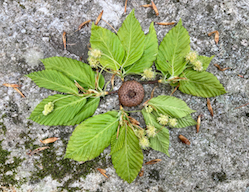In my recent college alum magazine, there’s an article about an alumnus who has been developing robots for security purposes. These robots can be sent into dangerous situations while humans control them from a safe distance. For example, in Fort Worth, TX a police officer sent a robot into a situation with a dangerous suspect. This suspect destroyed the robot with an AK-47 and the officer remained safe.
The company is also developing robots for consumer use – either for personal safety or, in his words, “because it’s cool.” This young man suggests that eventually personal robots could walk dogs and pick stuff off the floor. “I don’t think we’ll ever be able to replace everything that a human can do [with robots],” he says. “But the more we automate the mundane tasks we do, the more we’ll be able to use our human brains to their fullest extent.”
I’m not sure what tasks this young man considers mundane. I do know that the tasks of daily living – cooking, washing dishes, doing laundry, vacuuming the floor – are often considered mundane.
Now, I may be tempted by a robot that could vacuum and dust for me, but no way am I turning over my dog walking to a robot.
As I ponder the tasks that I enjoy doing, as well as those I don’t, I’ve come to appreciate a few things about these so-called mundane tasks.
The tasks of daily living get me out of my head and back into my body.
Walking up the hill and back with my aging yellow Labs, I get to move and my mind gets to rest. Similarly, with my hands in hot, soapy water, my mind gets to wander as I wash dishes. It seems to me doing these tasks of daily living actually allows me to use my human brain more fully because I am giving it a chance to rest.
The tasks of daily living are an opportunity to express love, both for myself and for others.
When I’m out with the dogs and hear Codi’s please-wait-while-I-chew-this-branch bark and watch Molly’s Codi-is-chewing-a-stick-so-please-give-me-a-treat dance, I laugh and am filled with love and appreciation for these furry creatures. Similarly, sometimes when I cook and fold laundry, I’m flooded with love for my family and take extra care with what I’m doing. A robot cannot express this love.
“Choose the work, and it becomes your spiritual practice.”
Barbara Brown Taylor writes in her book An Altar in the World, “If all life if holy, then anything that sustains life has holy dimensions too. The difference between washing windows and resting in God can be a simple decision: choose the work, and it becomes your spiritual practice.”
I know – and my dogs know – that I will get up in the morning, take care of some basic personal hygiene and then head out the door for a walk. I walk as much for me as for them. By contrast, I’m quite accomplished at ignoring the toothpaste splatters on the mirror. It’s easy for me to believe that I have something more important to do with my time than to sweep the deck. Once I decide to sweep, however, I become engrossed in the task and my relationship to it changes.
We have already automated the tasks of daily living to a certain extent with dishwashers, washing machines and vacuum cleaners, not to mention all manner of kitchen appliances. And rather than being the time saving devices they were touted as being, our standards have risen. For example, because it’s faster to sew a dress with a machine than by hand, we end up with more clothes.
These tasks address our basic needs for food, shelter and clothing. These needs are not going to go away.
I propose that rather than automating the tasks of daily living even further, we consider them holy, infuse them with love and beauty and enjoy being in our human bodies.
My invitation to you: How do you relate to the tasks of daily living? I’d love to hear about it.



“The tasks of daily living are an opportunity to express love, both for myself and for others.” I love this notion. Several years ago, discussing the holiday with my husband, I noted that for me cooking and creating an inviting setting to share with other is part of how I express my love and affection for the people in my world.
Marilyn-
I loved this post. It reminds me a lot of the concept of the Sanctity of the Present Moment, which sounds like a thread of what Barbara Brown Taylor was talking about.
Your post also challenges me to think again about my attitudes towards the daily work that just must get done.